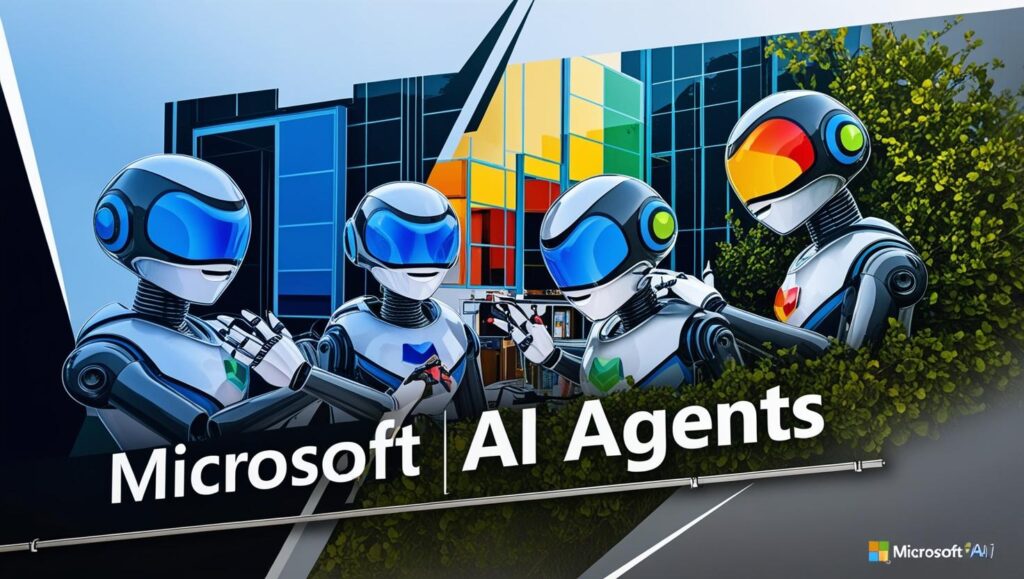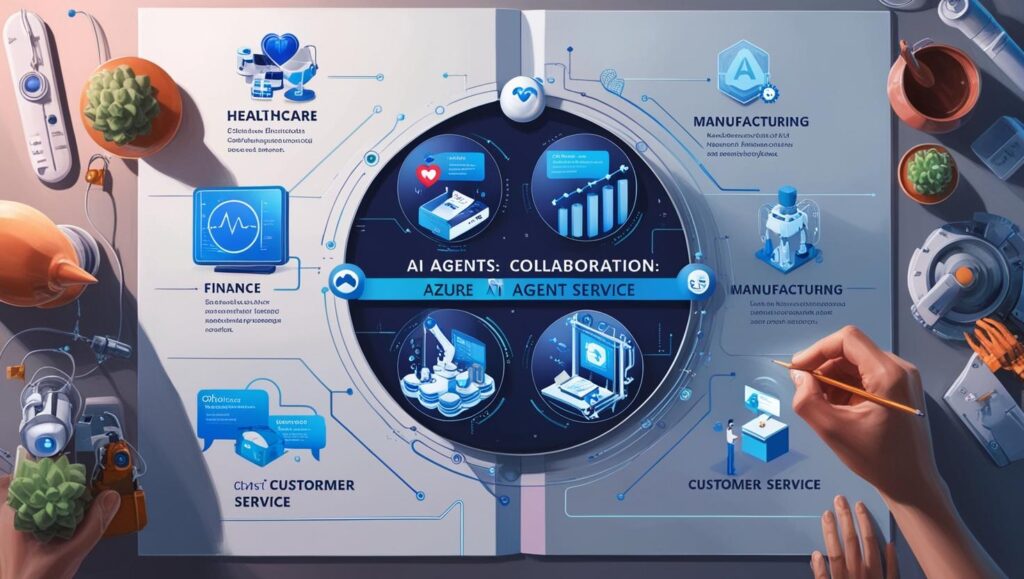
In a groundbreaking move, Microsoft is reshaping the landscape of artificial intelligence by focusing on two pivotal advancements: enabling AI agents to collaborate seamlessly across platforms and enhancing their memory capabilities. These developments aim to transcend the current transactional nature of AI interactions, paving the way for more intuitive and efficient digital workflows. At the heart of this transformation are initiatives like the Agentic Web and structured retrieval augmentation, which promise to redefine how AI systems operate and interact.
The Rise of AI Agents
What Are AI Agents?
AI agents are autonomous systems designed to perform specific tasks or functions without human intervention. Unlike traditional AI models that respond to individual queries, AI agents can execute complex workflows, make decisions, and interact with other systems to achieve their objectives. These agents are increasingly being integrated into various applications, from customer service bots to advanced data analysis tools.
Microsoft's Vision for AI Agents
Microsoft envisions a future where AI agents are not isolated entities but interconnected components of a broader ecosystem. This vision includes:
- Interoperability: Allowing agents from different developers to work together seamlessly.
- Enhanced Memory: Enabling agents to remember past interactions, leading to more personalized and efficient responses.
- Scalability: Supporting the deployment of agents across various platforms and environments.
AI Agents Collaboration: Breaking Silos

The Agentic Web: A Unified Ecosystem
The Agentic Web refers to a decentralized network of AI agents that can communicate and collaborate across different platforms and services. Inspired by the early days of the internet, this concept aims to break down the silos that currently exist between AI systems, allowing for a more integrated and cohesive digital experience. By adopting open standards and protocols, the Agentic Web seeks to foster innovation and interoperability in the AI landscape.
Model Context Protocol (MCP): Enabling Interoperability
To facilitate the Agentic Web, Microsoft is supporting the Model Context Protocol (MCP), an open-source standard introduced by Google-backed Anthropic. MCP provides a universal framework for connecting AI assistants to various data systems, such as content repositories and business management tools. This protocol addresses the challenge of information silos and legacy systems, enabling AI agents to access and utilize data from diverse sources efficiently.
Enhancing AI Agent Memory
The Challenge of AI Memory
Currently, many AI agents operate in a transactional manner, processing each request independently without retaining information from previous interactions. This lack of memory limits their ability to provide personalized and context-aware responses, making interactions feel robotic and disconnected.
Structured Retrieval Augmentation: A Cost-Effective Solution
To address this challenge, Microsoft is exploring structured retrieval augmentation, a method that allows AI agents to retain concise and relevant information from user interactions. Instead of storing vast amounts of data, agents create a roadmap of key points discussed, enabling them to recall pertinent details without incurring high computational costs.
Multi-Agent Frameworks: Orchestrating Collaboration
AutoGen: Microsoft's Multi-Agent Framework
AutoGen is an open-source framework developed by Microsoft to facilitate multi-agent collaboration. It enables the creation of AI agents that can work together to solve complex tasks, such as debugging code or conducting research. By supporting asynchronous messaging and structured workflows, AutoGen allows agents to communicate effectively and share information, enhancing their collective problem-solving capabilities.
LangChain and MetaGPT: Other Notable Frameworks
In addition to AutoGen, other frameworks like LangChain and MetaGPT are gaining traction in the AI community. LangChain focuses on integrating large language models with external data sources and tools, enabling agents to perform complex reasoning tasks. MetaGPT, on the other hand, employs a meta-programming approach to simulate human workflows, allowing agents to collaborate on software development projects by assigning specialized roles and responsibilities.
AI Agents Collaboration: Breaking Silos

Copilot Studio and Azure AI Agent Service
Microsoft’s Copilot Studio and Azure AI Agent Service are platforms designed to support the development and deployment of autonomous AI systems. These services provide developers with the tools and infrastructure needed to create AI agents that can automate business processes, such as scheduling meetings, managing emails, and analyzing data. By integrating with various Microsoft applications and services, these platforms enable agents to operate seamlessly within existing workflows.
Real-World Applications and Use Cases
The potential applications of autonomous AI systems are vast and varied. For instance, in the healthcare sector, AI agents can assist in diagnosing diseases by analyzing medical records and research data. In finance, they can monitor market trends and execute trades based on predefined criteria. In customer service, AI agents can handle inquiries and resolve issues without human intervention, improving efficiency and customer satisfaction.
Challenges and Ethical Considerations
Security and Privacy Concerns
As AI agents become more integrated into various systems, ensuring their security and protecting user privacy becomes paramount. Unauthorized access to sensitive data or malicious manipulation of AI agents can have serious consequences. Implementing robust security measures and adhering to privacy regulations are essential to mitigate these risks.
Ensuring Ethical AI Deployment
The deployment of AI agents raises ethical questions regarding accountability, transparency, and fairness. It is crucial to establish guidelines and frameworks that ensure AI systems operate in a manner that aligns with societal values and norms. This includes addressing biases in AI algorithms, ensuring transparency in decision-making processes, and holding developers accountable for the actions of their systems.
Conclusion
Microsoft’s initiatives to enhance AI agent collaboration and memory capabilities represent significant strides toward creating more intelligent and autonomous systems. By fostering interoperability through standards like MCP and improving memory retention with structured retrieval augmentation, Microsoft is laying the groundwork for a future where AI agents can work together seamlessly and remember past interactions, leading to more personalized and efficient digital experiences. As these technologies continue to evolve, they hold the potential to transform various industries, from healthcare to finance, by automating complex tasks and enabling more informed decision-making.
Frequently Asked Questions (FAQs)
- What is the Agentic Web?
The Agentic Web is a decentralized network of AI agents that can communicate and collaborate across different platforms and services, aiming to create a more integrated and cohesive digital ecosystem. - How does the Model Context Protocol (MCP) facilitate AI agent collaboration?
MCP provides a universal framework for connecting AI assistants to various data systems, enabling them to access and utilize data from diverse sources efficiently, thereby promoting interoperability. - What is structured retrieval augmentation in AI?
Structured retrieval augmentation is a method that allows AI agents to retain concise and relevant information from user interactions, enabling them to recall pertinent details without storing vast amounts of data. - How does AutoGen support multi-agent collaboration?
AutoGen enables the creation of AI agents that can work together to solve complex tasks by supporting asynchronous messaging and structured workflows, allowing agents to communicate effectively and share information.
